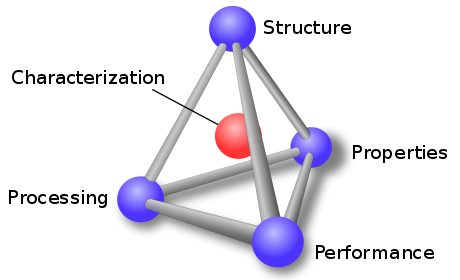

Theoretical and computational materials science lays the ground for the understanding of materials organization, processing, properties, and performance. This traditional materials science tetrahedron is currently moving toward the system-level understanding of materials design starting from individual components and followed by assembly and interface optimization. This pathway targets specific functionalities of the product whether it is a material or device. Materials modeling enables the design of a range of novel, unique materials with tailored properties.

MSE research focuses on theory, modeling, and development of new computational approaches to design multi-component and multi-functional organic and inorganic materials, to optimize processing routes, to study materials performance, and to develop the metrics for materials characterization. We investigate how specific microscopic mechanisms influence macroscopic materials properties, and aim at translating this knowledge into novel design and processing techniques. This includes the study of complex transport phenomena under non-equilibrium conditions. We use analytical modeling and various computational techniques that span the range of length scales from the mesoscale to the continuum level. These techniques are used to study a range of systems including soft bio-matter and composite materials. Importantly, we validate our novel models against experiments, which is critical for testing the model predictions, obtaining the realistic materials parameters, and facilitating the discovery of new phenomena.